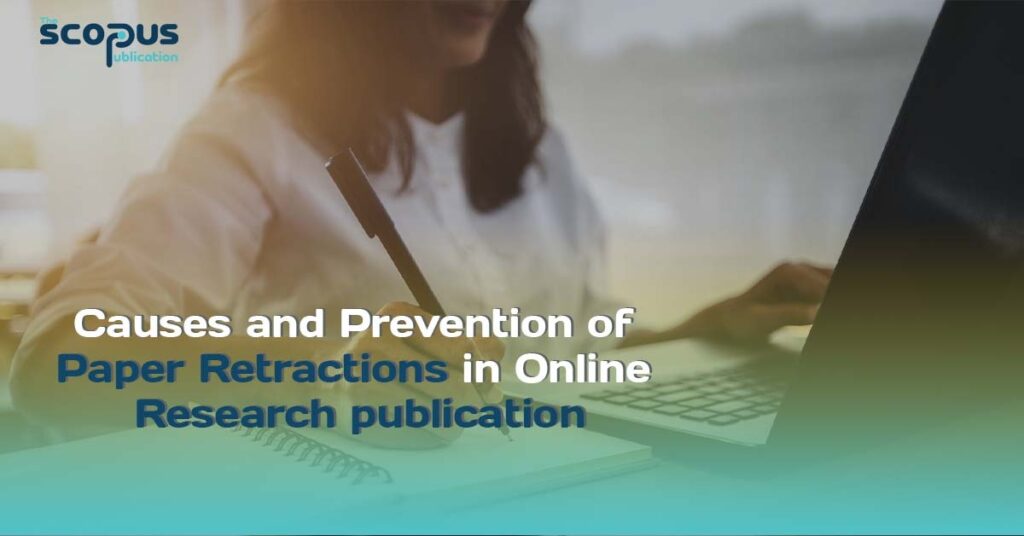Paper retractions are a major problem in the online research publication industry. Researchers, journals, and sponsors all suffer because of this problem. In the long run, the whole academic landscape is impacted when significant papers are retracted for one reason or another.
Yet, paper retraction is a common occurrence in academia. From young, individual authors to seasoned teams from well-known universities experience paper retractions in their lifetime. Mostly, retractions result from unintentional errors. However, many retractions also arise out of misrepresenting images, wrong calculations, or lack of enough data. Many researchers also fail to report the limitations of their studies leading to ultimate retractions.
This blog post discusses the major reasons behind these retractions as well as some tips to avoid them.
What is Paper Retraction?
For most authors, online or print publication of their research paper is the proof they need for the successful distribution of their work. It brings them the recognition they want and helps them spread the knowledge they value. However, some of these authors may feel dejected within a few weeks of research publication because they get an email from the relevant editor informing them of paper retraction.
This email tells them the reason that made their research less desirable for the readers of their journal. The news of retracting the said journal from circulation follows this email pretty quickly. The journal not only removes the research paper from online publication but also retracts the printed copies to edit and republish.
Implications of Paper Retractions
Now, online research publications don’t like these retractions, but they are forced to do so to maintain the reputation and credibility of their publication. If they leave these questionable articles in their issues, readers will stop trusting their work. On the contrary, retractions also make a dent in the reputation as the readers start questioning the rigor of the editorial process.
Researchers behind these retracted papers also suffer a loss of credibility. Their loss is especially significant if the research in question was their first published study. If the retracted study was sponsored by research grants, they also suffer a decline in the possibility of securing more grants for future projects.
At the same time, we can assume the financial loss suffered by the sponsors of these studies. Not only did their grant not result in a reliable conclusion, but they also lost credibility in choosing the right researcher and research question for their precious funds.
Causes of Retractions
In the world of online research publications, retractions can happen because of low quality of research and presentation. A few reasons that impact this quality include presenting insignificant data, concluding wrong results, misreporting or miscalculating results, poor presentation of images, and not reporting the limitations on methods used.
The independence and trust of the academic world depends on the assumption that researchers work in the best interests of science and development and take reasonable care when developing and presenting their work. However, many researchers try to bypass the grind that’s necessary for publication by using paper mills to do their work for them.
At the same time, some researchers are blinded by their desire to prove a hypothesis because they can relate to it. Because of this bias, they may ignore or fail to account for the errors and limitations that seep into their work and lead to their desired results. Ultimately, these biases jeopardize the authenticity and reliability of the research results.
Avoiding Paper Retractions
Below we will educate you about all the methods you must employ while developing and presenting your work for online research publication to ensure its success.
Meet Research Integrity Guidelines
Every journal upholds some criteria to ensure the integrity of research published on them. When you develop your research question and methodology, take a break and search for the appropriate journal for your work. Once a journal (or a few journals) is selected, make sure to read the integrity criteria and stick to the highest of them.
Start with Literature Review
Originality is a key aspect that impacts the success of research. You can ensure that your study idea is original by conducting a thorough literature review. Read all relevant data. You will also get help by studying their research limitations and improving your study in light of these limitations.
Meet the Data Requirements
Data is what determines the success of any study. If you want to prove that your research bore reliable results, you must support those results with enough data. Take your time to understand the data requirements from the journal and stick to them.
Report Limitations
Be transparent about the limitations of your research scope or methodology. You must report these limitations even if they appear minor concerning the results you have gathered.
Ensure Reliability and Validity of Research
Reliability and validity are crucial components that render a study dependable. You must care about ensuring these factors to uphold the integrity and honesty of the work.
Get Reviewed
Most prestigious journals are peer-reviewed. Some aren’t, but they don’t prevent you from getting your work reviewed before submitting. Even if your desired journal is peer-reviewed, getting your paper reviewed before sending it for publication is a good move. This way, you will gain surety that your selected reviewer was free of bias and honest about his opinion.
Seek Journal Publication Support Services
Getting help from an experienced team to review your work’s quality also helps maintain its quality. They can help you review the quality of reporting, managing the peer-review process, ensuring that guidelines are met.
Wrap Up
Paper retractions are a big issue in the academic world that affects not only journals but also researchers and readers. This blog post highlights the causes and impact of this problem. At the end of this post, you can find actionable tips to avoid these retractions as a researcher.


